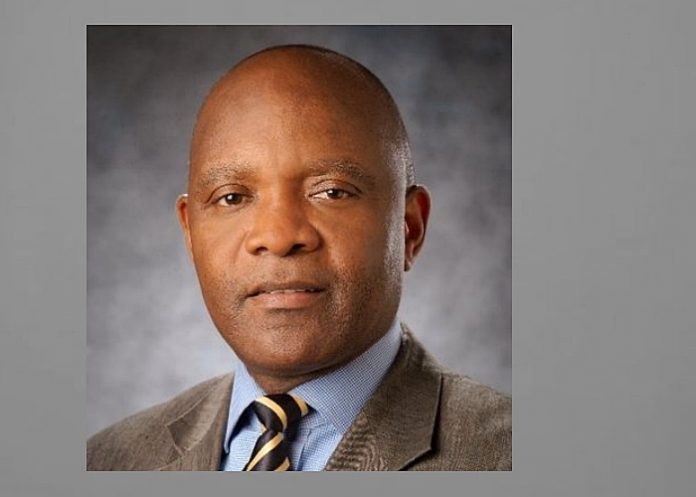Public health in Africa has been a story of neglect and dependency, says Dr John Nkengasong, the first director of the Africa Centers for Disease Control, tells The New York Times. And access to vaccines and Covax was was “a moral tragedy”.
“I think this virus is winning. As a continent, we are not winning. Today we have more than seven million cases with close to 180,000 deaths. And the death rates are all increasing very dramatically across the continent. Vaccination rates are very, very low. We are around 2.5 percent of the population vaccinated fully, and this is a continent of 1.2 billion people.”
When Nkengasong took the job as the first head of Africaʼs new Centers for Disease Control in 2017, part of the continent had just emerged from a devastating Ebola outbreak. Less than three years later, COVID-19 hit.
He is now trying to unite the governments of a vast, diverse continent to anticipate and fight public health threats and make them less reliant on international institutions like the World Health Organization or the Red Cross. He has helped Africa speak with a unified voice, particularly about what he calls “vaccine famine,” with rich countries buying up millions of doses they don’t need while Africa goes wanting.
Perhaps Ebola was a signal that something bigger was looming, he says, and that something turned out to be COVID-19. He also thinks COVID-19 could be a harbinger of something worse to come: a virus as contagious as the Delta variant but with the high fatality rate of Ebola.
The Africa CDC was started in response to the Ebola outbreak, with funding from the African Union and some other donors. When Nkengasong arrived in Addis Ababa from Atlanta, USA, for months there was no office or staff and even at one point no internet; the Ethiopian government had shut it down to prevent people from cheating on university entrance exams.
But, he says: “We can do public health under the tree. It doesnʼt matter. The thing is the concepts. Are you committed to solving problems of inequity and health security?”
When COVID-19 first hit the continent, it was in December 2019, and he was on leave, he said. “We started hearing stories about the virus in Wuhan. I called Addis Ababa and said, ’Activate our Emergency Operations Center.’ I got resistance from my staff, who said, this thing is far away. We have Ebola going on. We are too busy. I said they must please, just do it, because I know this will come.”
The continent started off well, according to the New York Times report. “Weʼd positioned ourselves. We scrambled. We trained people. It will sound ridiculous, but at the first trainings we did in South Africa and Senegal, everybody went home with a pack of 100 tests.”
An emergency, he said, is where your house is on fire. “You run around, you call 911, they come sprinkle water. That phase is over. Your house is burned down. This virus is winning. As a continent, we are not winning. We have more than seven million cases with some 180,000 deaths. Death rates are all increasing. Vaccination rates are low. We are around 2.5 percent of the population vaccinated fully, and this is a continent of 1.2 billion people.”
Nkengasong said access to vaccines and the role Covax was supposed to play was “a moral tragedy”.
“The intent and the design was excellent, but the execution — even the people running Covax will admit it has not delivered on its promise. Those countries funding Covax, or that pledged funding, were developed countries. Iʼm not sure they necessarily gave money. But then, they bought all the vaccines. So even with the money that Covax had, there was nowhere to get vaccines from.
“We are not saying, donate to us. Weʼre just saying, let Africa come forward with their 400 million doses of vaccines — that they have paid for! By just swopping the order in which we are in the queue for vaccine delivery, I think you can begin to solve a lot of the problems.”
He said African governments had not invested enough in their public health needs.
“The public health architecture and health security architecture have been designed, since World War 2, in such a way that they created dependency. Africa has about three million healthcare workers. That is nothing. And our health security architecture was designed when the population was less than 300 million. Today we are 1.2 billion people, aspiring to get to 2.5 or 2.4 billion in the next 30 years.
“No people will survive with importing 99% of their vaccines and importing 100% of their diagnostics. We need 6,000 epidemiologists. We have only about 1,900 on the continent.”
He said vaccine hesitancy was no longer the issue, according to the New York Times report. “Vaccine famine is the challenge now. Our goal was to get at least 25% to 30% of the continent vaccinated by the end of the year. At our current pace, we are very deliberately moving toward endemicity of this virus on the continent. Now itʼs concentrated in big cities, but it will soon spread into remote areas, and it becomes very difficult to flush out.”
Nkengasong added that “learning a lesson is what Africa is currently doing; we donʼt have vaccines, we have to produce vaccines”.
“If we continue on this journey driven by a new public health order, when the next pandemic hits, weʼll be fighting it very, very differently.”
See more from MedicalBrief archives:
Africa's second wave was more severe than the first — Africa CDC
Africa’s first COVID-19 vaccine technology transfer hub
Africa CDC reports on response to DRC's Ebola epidemic

